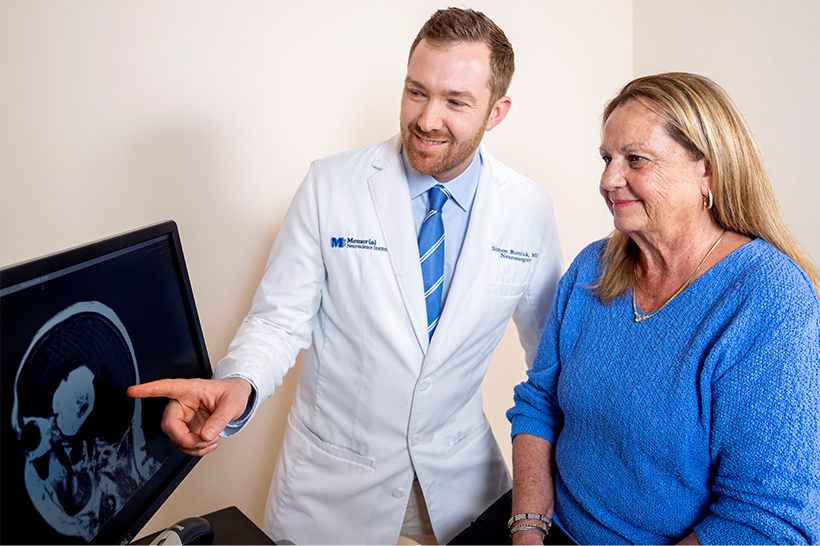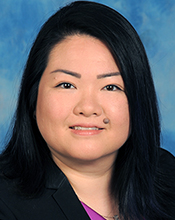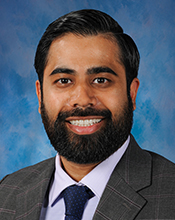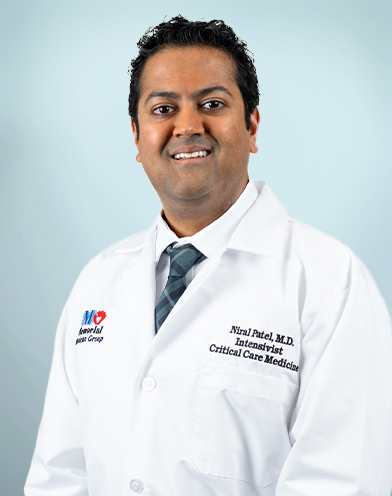
Neurocritical Care
Our neurocritical care teams provide exceptional care and support for patients and families.
What Is Neurocritical Care?
Neurocritical care, or neurointensive care, is an advanced level of care for people with serious neurological conditions. The role of the neurocritical care team is to recognize complications early and step in with immediate treatment.
Neurointensivists lead the team of highly trained medical personnel. These physicians have specialized training in both critical care medicine and neurology. Other team members include:
- Advanced practice providers
- Nurses
- Pastoral care providers
- Pharmacists
- Neuroradiology specialists
- Neurorehabilitation therapists
- Respiratory technologists
- Social workers
Neurologists and neurosurgeons at Memorial Neuroscience Institute also work with neurocritical care teams to guide treatment.
Conditions We Treat
Neurocritical care teams treat people with traumatic injuries and life-threatening neurological disorders. Common conditions we treat include:
- Brain and spinal cord infections, such as encephalitis and meningitis
- Brain tumors
- Epilepsy and status epilepticus (long-lasting seizures)
- Neuromuscular disorders that can lead to respiratory failure, such as myasthenia gravis and Guillain Barré syndrome
- Ruptured brain aneurysms and arteriovenous malformations (AVMs)
- Stroke
- Traumatic brain injuries and traumatic spine injuries
They also provide care for neurological complications from other conditions, such as heart attack.
Neurocritical Care Across Memorial Healthcare System
Patients have access to neurocritical care at all five of our hospitals. Neurocritical care teams are part of the intensive care units (ICUs) at Memorial Regional Hospital and Memorial Hospital West. Patients needing this level of care typically come to the ICU from the emergency department and after neurosurgery.
Neurocritical care specialists also provide consultations for patients at Memorial Hospital Pembroke, Memorial Hospital Miramar and Memorial Regional Hospital South.
Nationally Recognized Care
Neurocritical care is an essential part of our ability to provide first-class care. We have earned several national recognitions that demonstrate this level of excellence:
- Comprehensive Stroke Centers: Our Comprehensive Stroke Centers at Memorial Regional Hospital and Memorial Hospital West exceed national benchmarks for stroke survival.
- Level 1 Trauma Center: Memorial Regional Hospital is a Level 1 trauma center capable of providing the most advanced care available. As a regional leader, we receive complex cases from other hospitals in the area.
Neurocritical Care: Why Choose Memorial Healthcare System?
When patients need lifesaving neurocritical care, you can count on Memorial for:
-
Specialized expertise: Our neurocritical teams include specialized medical professionals. They work together to monitor patients and provide emergency care.
-
High-tech technology: We use modern equipment like continuous brain monitoring to detect problems quickly. Other tools allow us to track brain activity, blood circulation in the brain and intracranial pressure.
-
Family-centered care: We understand the stress families face when a loved one needs neurocritical care. Our team supports family involvement by providing frequent updates, answers to questions and more.

















